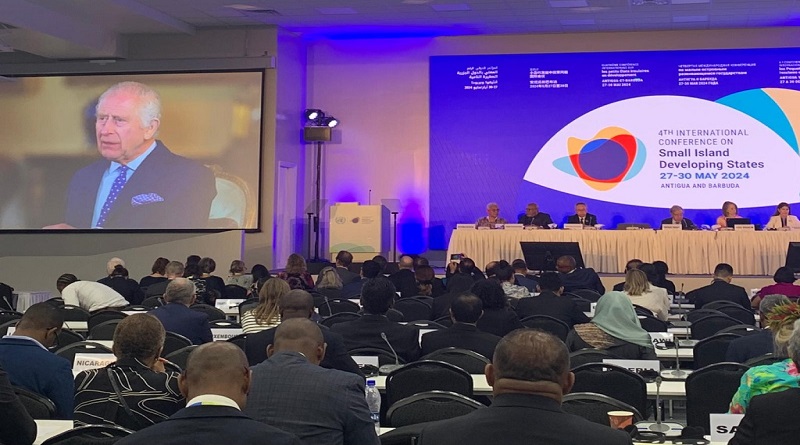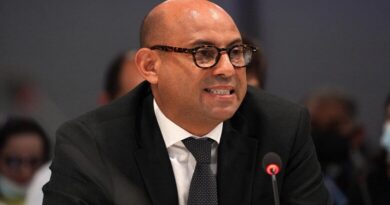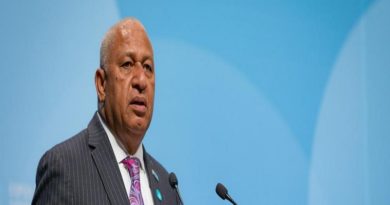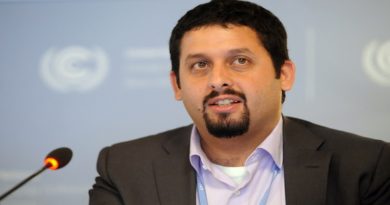UNDP, GEF launch $135m new initiative to support Small Island Developing States to tackle drivers of environmental degradation
The United Nations Development Programme (UNDP) and the Global Environment Facility launched a new $135 million Blue and Green Islands Integrated Program (BGI-IP) on Tuesday 28 May 2024 during the Fourth International Conference on Small Island Developing States (SIDS4). This initiative aims to emphasize the crucial role of nature and expand nature-based solutions to combat environmental degradation in three key sectors: urban development, food production, and tourism. Targeting 15 SIDS, the program seeks to foster nature-positive changes. Managed by the UNDP and funded by the GEF and partners, this effort represents a new wave of support for SIDS as they embark on the Decade of Action from 2024 to 2034.
The BGI-IP will support 15 SIDS, selected through a competitive “Expressions of Interest” process, representing all SIDS sub-regions: the Caribbean; the Pacific; and the Atlantic, Indian Ocean, and South China Sea (AIS). The BGI-IP will provide communities with the resources to expand successful initiatives that solve challenges faced by local people. The program will support sustainable agriculture and fisheries, promote nature-friendly tourism, reduce pollution, and improve resilience to extreme weather events. In partnership with UNEP, FAO, the World Bank, WWF-US, IUCN, and UNCCD, among others, the initiative will provide a crucial and substantial means of support for sustainable economic diversification and job creation.
“SIDS are on the frontlines of climate change and nature loss as they face harsh realities of sea level rise, more unpredictable weather patterns, and degraded ecosystems, yet their unique situation also means that they are also driving forward a remarkable range of innovative and interconnected solutions,” said Achim Steiner, UNDP Administrator. “With the invaluable support of the Global Environment Facility, the Blue and Green Islands Program will serve to scale up nature-based solutions in the food, tourism, and urban sectors that help shift key sectors from nature-negative to nature-positive — improving the daily lives of people on small islands and helping to revive the health of our natural world.”
“Nowhere is the connection between a strong economy, a healthy environment, and a healthy people, clearer than in the SIDS. Given their unique vulnerabilities to loss of biodiversity, plastic and waste pollution, and climate and socio-economic changes and shocks, SIDS are the best incubators of innovation for sustainable development with many initiatives that can have substantial impact on the planet and the people,” said Carlos Manuel Rodríguez, GEF CEO and Chairperson. “The Blue and Green Islands Integrated Program is designed to respond to the need for usable information on nature and ecosystems among decision-makers and securing resources for impactful initiatives, while building connections across vast oceans to create greater results.”
Selected through the “Expressions of Interest” process, the 15 SIDS, out of 39 in total, are: Belize, Cabo Verde, Comoros, Cuba, Maldives, Mauritius, Micronesia, Palau, Papua New Guinea, Saint Lucia, Samoa, Seychelles, Timor Leste, Trinidad & Tobago, and Vanuatu.
The BGI-IP is one of several interconnected programs designed to move the needle toward system transformations in line with national priorities. The GEF invests in Integrated Programs to tackle drivers of environmental degradation and address multiple systemic threats at once, such as those driven by cities, food systems, plastics, and forest land use. GEF support for a dedicated coordination platform offers technical support and national-level capacity for integrated solutions and leverages external funding opportunities for impactful outcomes across multiple scales.
Aligned with the Antigua & Barbuda Agenda for SIDS (ABAS) and the next Decade of Action, the BGI-IP will target key barriers and shift levers to transform the way ecosystems are protected and sustainably managed in SIDS, generating vital global environmental benefits over time.
The Global Environment Facility (GEF) is a multilateral family of funds dedicated to confronting biodiversity loss, climate change, and pollution, and supporting land and ocean health. Its financing enables developing countries to address complex challenges and work towards international environmental goals. The partnership includes 186 member governments as well as civil society, Indigenous Peoples, women, and youth, with a focus on integration and inclusivity. Over the past three decades, the GEF has provided nearly $25 billion in financing and mobilized another $138 billion for country-driven priority projects. The family of funds includes the Global Environment Facility Trust Fund, Global Biodiversity Framework Fund (GBFF), Least Developed Countries Fund (LDCF), Special Climate Change Fund (SCCF), Nagoya Protocol Implementation Fund (NPIF), and Capacity-building Initiative for Transparency Trust Fund (CBIT).




